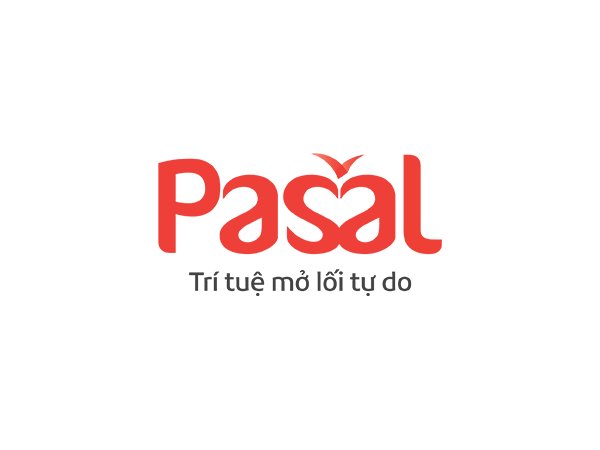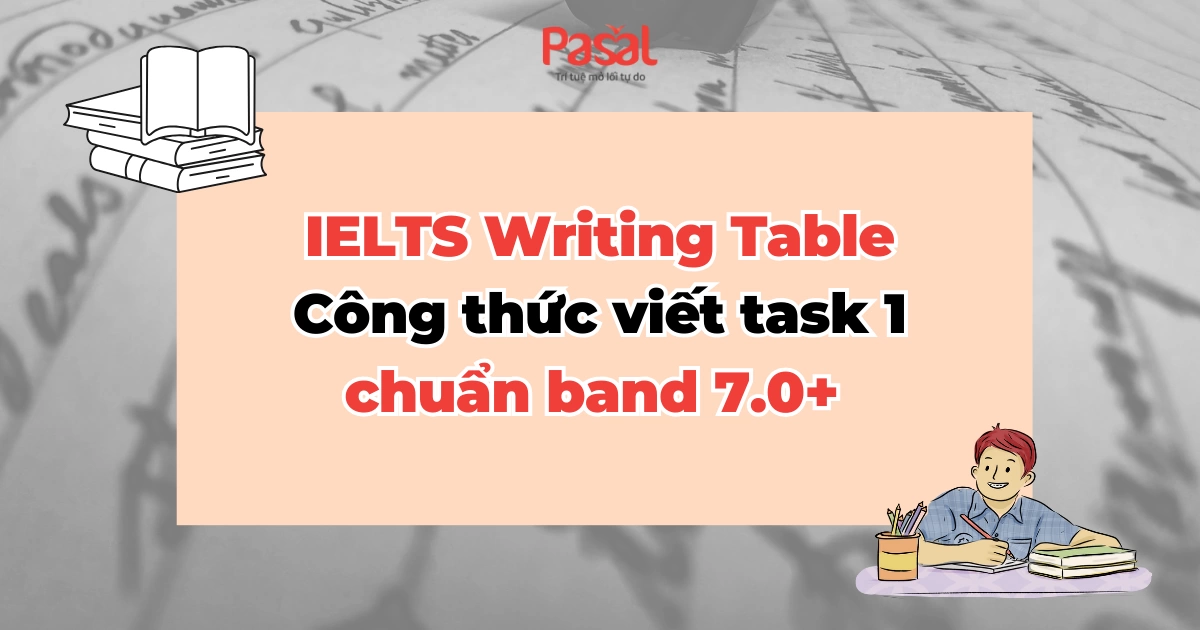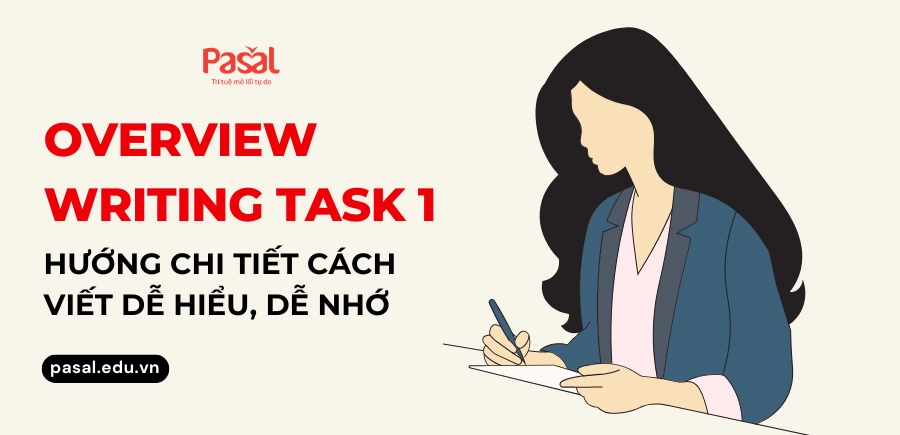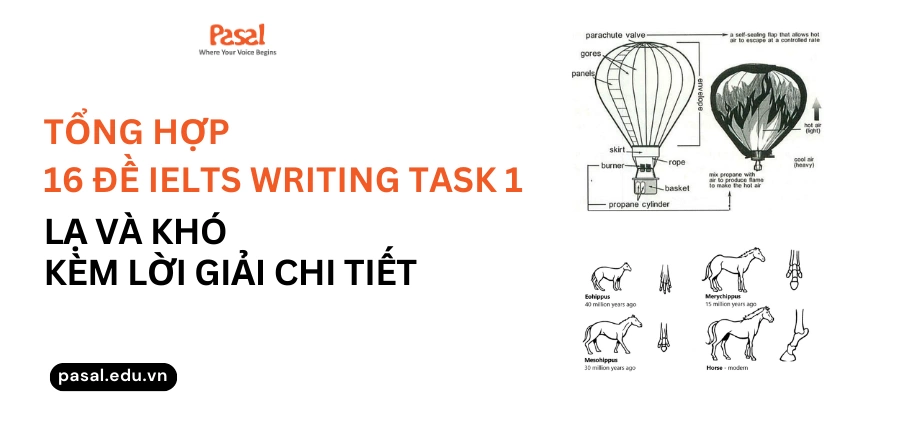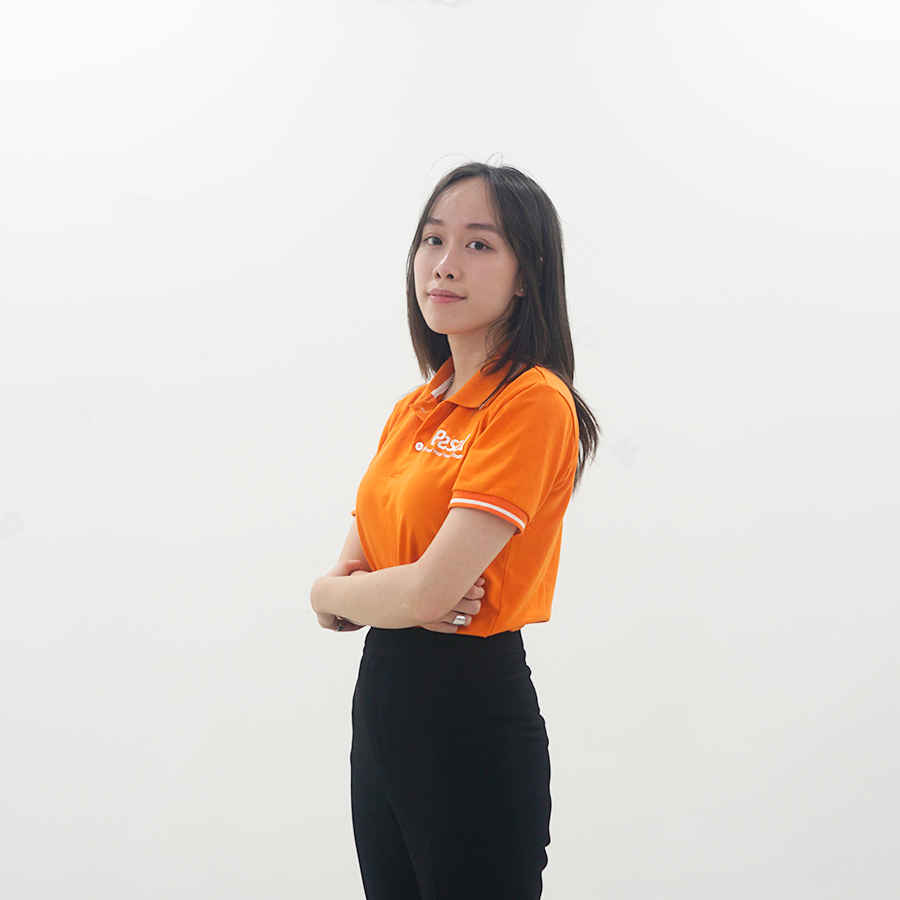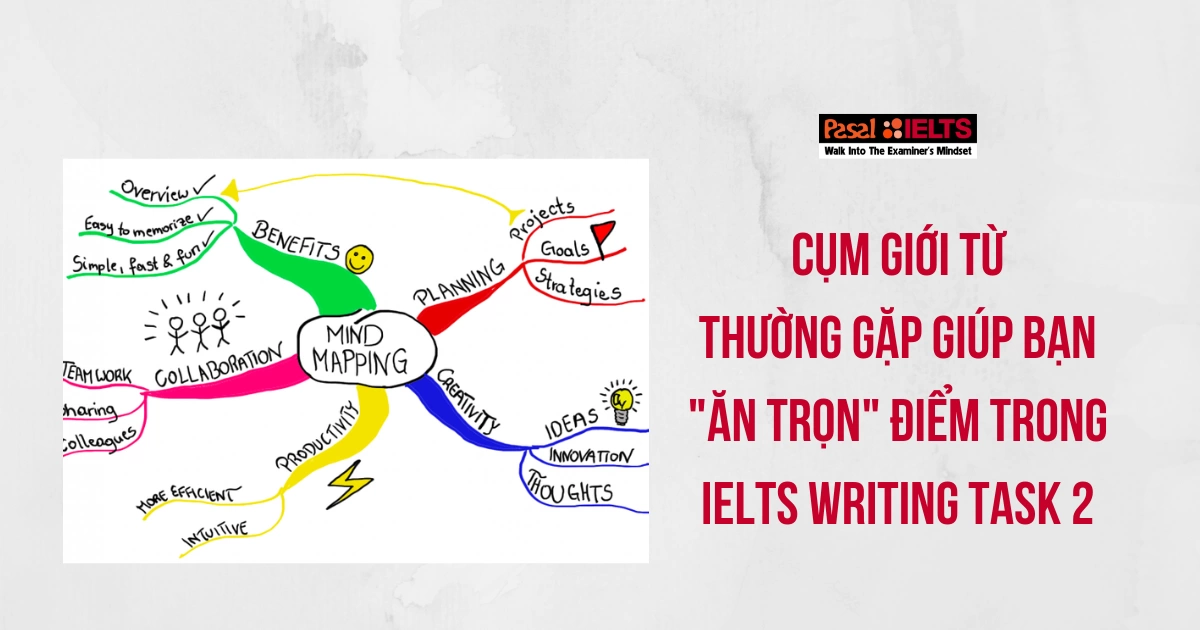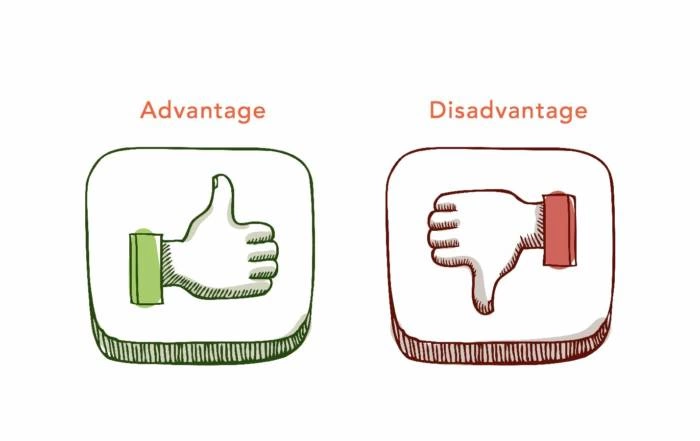Các chủ đề phổ biến trong IELTS Writing [Tổng hợp từ thầy Simon]
Nội dung quan trọng:
- Tổng hợp 24 chủ đề IELTS Writing thường xuất hiện trong đề thi thật, gồm 3 nhóm chủ đề chính: Advertising, Money, Personality và 21 chủ đề phụ khác.
- Hướng dẫn cách học ideas hiệu quả và tùy biến theo phong cách cá nhân.
Pasal giới thiệu 24 chủ đề phổ biến trong IELTS Writing được thầy Simon – cựu giám khảo IELTS biên soạn. Đây là nguồn tài liệu quý giúp bạn nắm bắt xu hướng đề thi, mở rộng vốn ý tưởng và tự tin viết bài đạt điểm cao
1. Các chủ đề phổ biến trong IELTS Writing
Trong 4 kỹ năng của kỳ thi IELTS, Writing được coi là “khó nhằn” nhất với phần lớn người học. Bạn phải đầu tư rất nhiều thời gian để luyện viết, lên ideas (ý tưởng) và chọn lọc từ vựng học thuật phù hợp.
Hiểu được khó khăn này, Pasal tổng hợp 24 chủ đề phổ biến trong IELTS Writing được biên soạn bởi thầy Simon Corcoran – cựu giám khảo IELTS nổi tiếng. Danh sách này sẽ giúp bạn định hướng rõ ràng, tiết kiệm thời gian tìm kiếm ý tưởng và học cách triển khai bài luận hiệu quả cho IELTS Writing Task 2.
Trong đề thi IELTS Writing, có rất nhiều chủ đề xoay quanh đời sống xã hội, giáo dục, công nghệ, hay môi trường. Tuy nhiên, ba chủ đề được thầy Simon đánh giá là phổ biến nhất gồm:
- Advertising (Quảng cáo)
- Money (Tiền bạc)
- Personality (Tính cách)
Hãy cùng khám phá chi tiết từng chủ đề cùng những ideas thực tế và dễ áp dụng nhất từ thầy Simon nhé!
2. Advertising – Chủ đề Quảng cáo
Trong chủ đề này, bạn đọc được cung cấp nhiều khía cạnh của Advertising cùng ideas như:
Positives of advertising
- Advertising is an important part of modern business.
- Companies need to tell customers about their products.
- Advertisements inform us about the opinions we have.
- Advertising is a creative job that employs many people.
- Without advertising we would not have many choices.
- Without advertising, the percentage of unemployment would increase.
- Advertising is a form of modern art.
- People enjoy adverts.
Negatives of advertising
- Advertising manipulates people.
- It aims to persuade people that buying a product will make them happier.
- Advertisers focus on selling a brand image.
- They use glamorous, successful people.
- We now live in a consumer culture.
- We are persuaded to follow the latest trend.
- We are encouraged to associate certain brands with a higher status.
- Children are the aim of advertisers.
- Advertisements may have a negative impact on children.
- Children put pressure on parents to buy them things.
Opinion about advertising
- Advertising should be regulated.
- Advertising aimed at children should be controlled or even banned. Unhealthy foods should not be marketed in a way that attracts children.
- Products that can be a risk to health should display warnings.
- In some countries, cigarette advertisements are banned on television.
- Warnings must be displayed on cigarette packets.
- However, advertising is necessary for free market economies.
- The demand for products would be created by advertisements.
- Governments should only censor false information or products that are harmful.
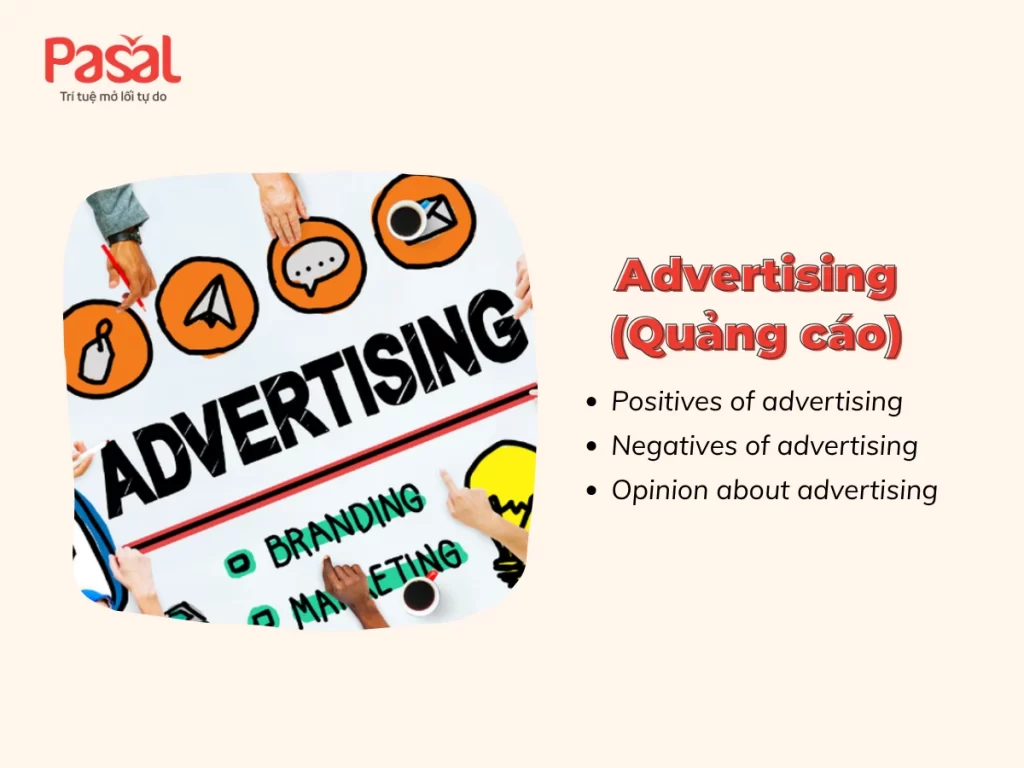
3. Money – Chủ đề Tiền bạc
Money là một chủ đề quen thuộc và rất phổ biến trong IELTS. Tổng hợp ideas mới toanh liên quan đến Money như:
Money and Society
- Society has become increasingly materialistic.
- People aspire to earn more money.
- They want to better their lives with a better house or a car.
- We connect wealth and material possessions with happiness and success.
- People’s status is expressed in brands like “Armani” or “Mercedes”.
- New desires and needs are created by advertising.
- It persuades us to buy the latest styles.
Positives of consumerism
- Consumerism creates employment.
- The rate of poverty would be reduced by consumerism.
- It helps businesses to innovate and create.
- We live in a global economy.
- We have a better quality of life.
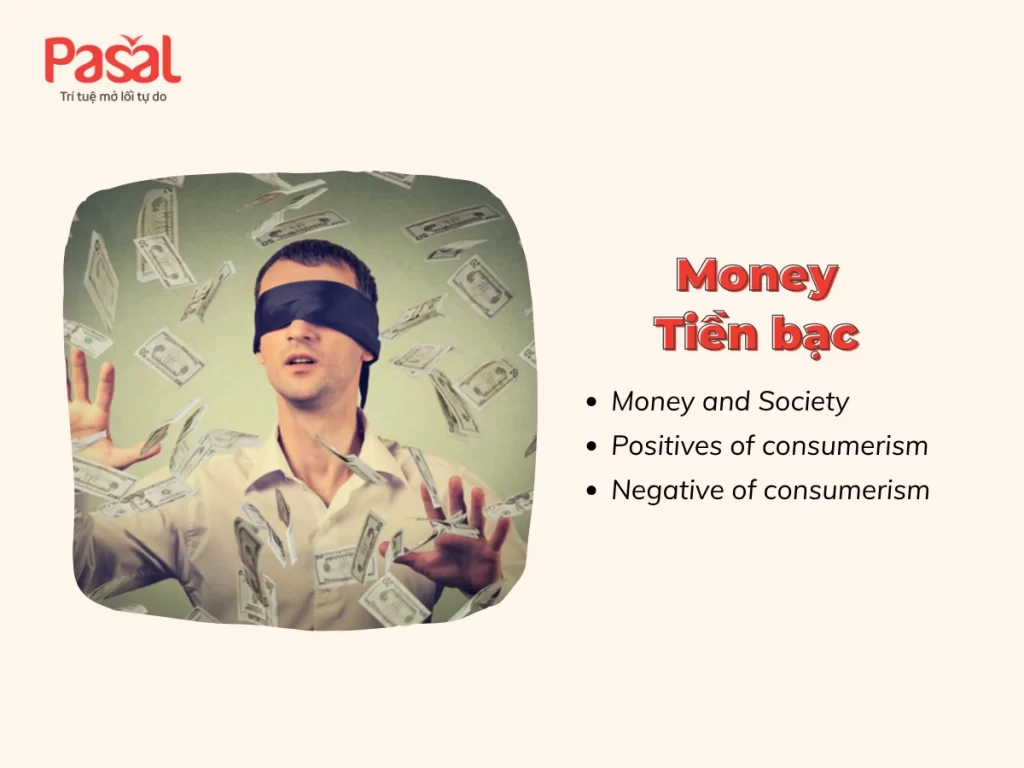
Negative of consumerism
- Consumerist societies create more waste.
- The natural resources may be exhausted by the use of consumers
- It’s harmful to the environment.
- Consumerism creates a “throw-away” culture.
- Advertisers tell us who we are and what we want.
- Wealth does not lead to happiness.
- Materialism causes greed and crime.
- We should return to traditional values like sharing.
4. Personality – Chủ đề Tính cách
Hay với Personality, người ôn thi IELTS có thể tìm hiểu những ideas sáng tạo, mới mẻ như sau:
Happiness
- To each person, the definition of happiness is different.
- It can be described as a feeling of pleasure or enjoyment.
- People enjoy spending time with family and friends.
- Source of fun and enjoyment can come from hobbies, sports and games.
- Some people see money as a source of happiness.
- Other people define happiness as something deeper.
- A good life is necessary to be happy.
- We need to feel that we are doing something useful with our lives.
- Some people get a sense of achievement from their work.
- Others find happiness in bringing up their children.
- Religion or a sense of purpose can also be a source of happiness.
Success
- Success is defined in many ways.
- Raising a family can be an achievement for some people.
- Others define success as wealth or status.
- A lot of people think that rich and famous people are successful in life.
- Millionaires like Bill Gates are considered to be successful due to his achievements in working.
- They have risen to the top in their chosen professions.
- To some extent, being successful means achieving personal or professional goals.
- Hard work is considered the reason for success.
- Long-term planning and effort are the key parts of success in any field.
Nature or nurture
- Some people believe that our personalities are determined mainly by genetics.
- We inherit our abilities and talents from our parents.
- Others think that our education and upbringing are more important.
- We develop according to the influences around us.
- Our personalities and achievements depend more on nurture than nature.
- Many people argue that we control our own destinies.
- We can shape our own personalities.
- By working hard, we can achieve a goal that we put our minds to.
- Many successful people are “self-made”.
- We are not limited by our genetic characteristics or upbringing.
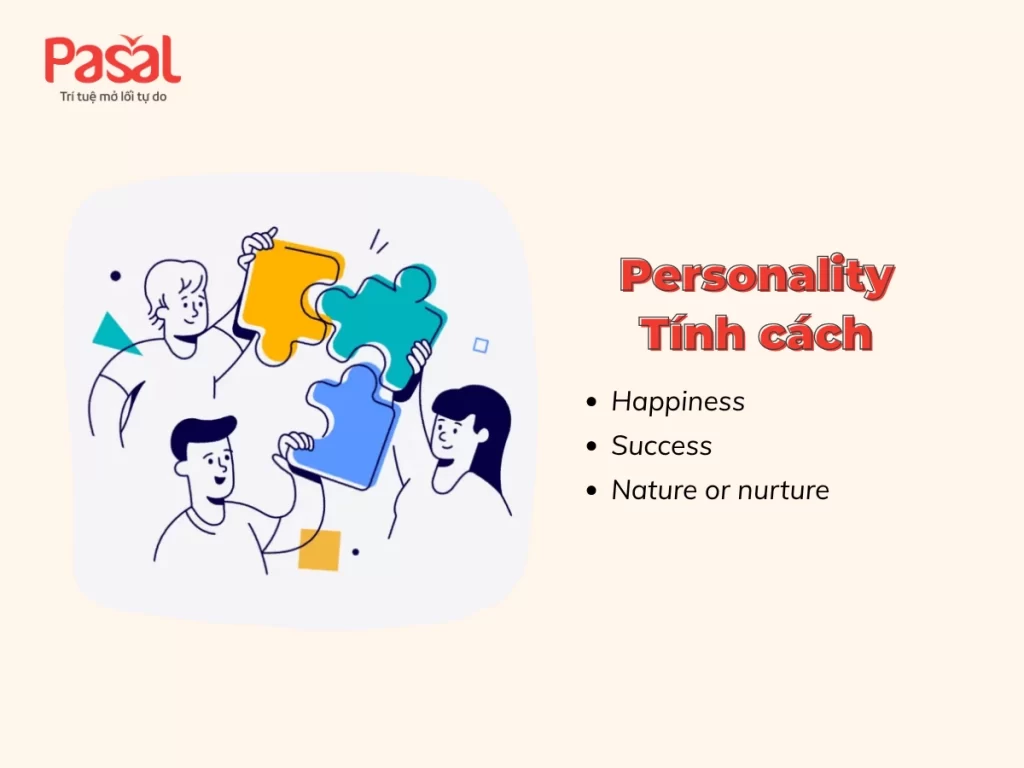
5. Các chủ đề khác thường gặp trong IELTS
Dưới đây là danh sách các chủ đề phổ biến khác trong IELTS Writing và Speaking mà bạn có thể gặp:
| STT | Chủ đề | Gợi ý nội dung |
| 4 | Sport & Leisure | professional sport, sports salaries, politics in sports |
| 5 | Language | English as an international language |
| 6 | Television, Internet, Phones | pros & cons, technology impact |
| 7 | Tourism | positive & negative effects, future of tourism |
| 8 | Traditional & Modern | losing traditional skills, customs |
| 9 | Transport | traffic issues, public transport, safety |
| 10 | Water | clean water, politics, bottled water debate |
| 11 | Work | job stability, work-life balance, self-employment |
| 12 | Genetic Engineering | advantages/disadvantages of GM foods |
| 13 | Global Issues | immigration, globalization, developing countries |
| 14 | Government & Society | policies, censorship, disabilities support |
| 15 | Guns & Weapons | legality, police, arms trade |
| 16 | Health | diet, exercise, healthcare systems, stress |
| 17 | Animal Rights | animal testing, vegetarianism, zoos |
| 18 | Cities | urbanization, city life negatives, pedestrian zones |
| 19 | Crime | prevention, punishment, rehabilitation |
| 20 | Education | studying abroad, technology, school behavior |
| 21 | Environment | global warming, waste, recycling, nuclear power |
| 22 | Family | working parents, divorce, caring for the elderly |
| 23 | Gender | equality in education, workplace roles |
| 24 | Housing & Architecture | old buildings, green buildings, state housing |
6. Lời khuyên khi học các chủ đề IELTS Writing
- Học ideas theo nhóm chủ đề giúp bạn dễ ghi nhớ và sử dụng linh hoạt khi làm bài IELTS Writing.
- Đừng sao chép nguyên văn ideas của thầy Simon, hãy diễn đạt lại theo cách riêng để tăng tính sáng tạo và tự nhiên cho bài viết.
- Dành 1-2 tiếng mỗi ngày luyện viết, phân tích đề và mở rộng từ vựng theo từng chủ đề để nâng cao kỹ năng.
- Các chủ đề trong bài viết cũng rất hữu ích cho phần IELTS Speaking Part 3, nên bạn có thể luyện tập song song hai kỹ năng này để đạt hiệu quả cao.
7. Kết luận
Trên đây là 24 chủ đề phổ biến trong IELTS Writing được tổng hợp từ thầy Simon – nguồn tài liệu uy tín giúp bạn chuẩn bị hiệu quả cho kỳ thi IELTS.
Nếu bạn muốn học IELTS bài bản với lộ trình rõ ràng, cam kết đầu ra từ chuyên gia Simon Corcoran, hãy tham khảo các khóa học tại Pasal để tự tin chinh phục band điểm mơ ước nhé!
Tham khảo thêm:


